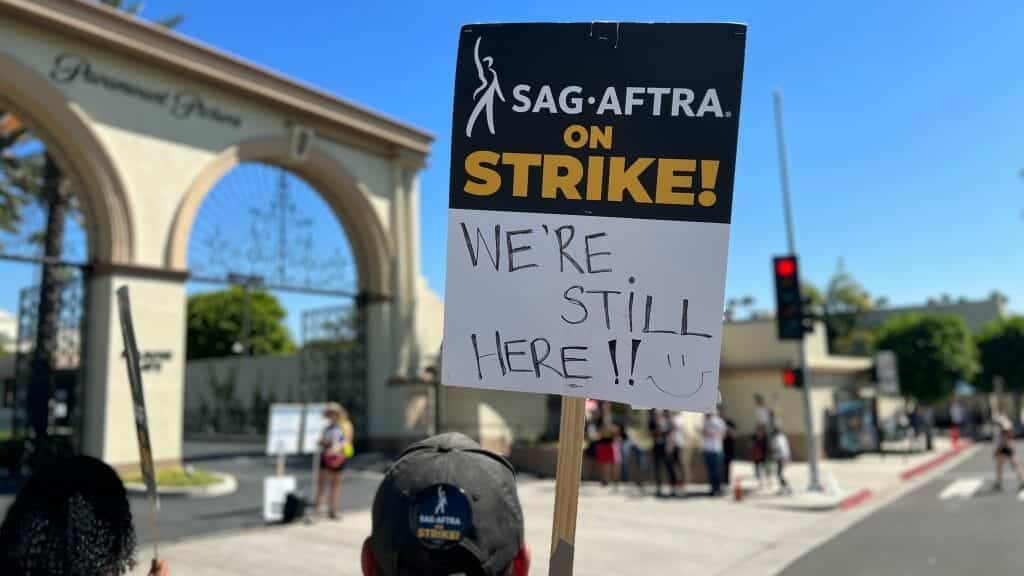After an almost 150 day-long strike, the Writers Guild of America (WGA) started the voting process to ratify a contract with television and movie studios on Monday.
The thousands of WGA members have until Oct. 9, to cast their vote in favor or against the deal.
The new contract should incorporate and apply the WGA’s list of demands, edited from the start of the strike in May.
WGA Demands
WGA writers argued that they deserve an increase in streaming residuals and compensation for television shows throughout the production process.
Another area of concern is the impact of artificial intelligence on the writing industry. Writers are concerned over the potential use of artificial intelligence to replace their work.
The tentative contract will restrict the usage of AI to write or rewrite literary material. The writer may use AI if the company permits, but the company can’t require the writer to use AI software as a complete replacement.
Apart from AI, television series can also have as little as six episodes because of the prominence of streaming and binging. With fewer episodes to write, the amount of writers on one project has decreased.
Part of the agreement enforces staff requirements based on the number of episodes unless one single writer is employed to write the entire season.
In addition to three writer-producers, if a season has up to six episodes, three writers are required. Series that have seven to 12 episodes require five writers. Longer series require at least six writers.
The WGA is also asking for increased pension, health benefits, professional standards and overall job protections.
Beyond Writers
Industry-wide support and pressure helped facilitate change for the writers in Hollywood.
Most notably, over 100 Hollywood celebrities joined the writers by protesting and posting on social media. Some celebrities, such as Chris Pine and Pete Davidson, provided food for the picket line.
Others referenced their popular shows to garner attention for the cause, such as Ben McKenzie and The O.C.
Snoop Dogg notably brought up the writer’s strike and the issues with streaming during a conference.
Drew Barrymore pulled out of hosting the MTV Movie & TV Awards because of the strike. Celebrities like Vanderpump Rules Star Lala Kent didn’t attend the event in solidarity with writers.
Even politicians such as U.S. Representative Alexandria Ocasio-Cortez and former U.S. President Barack Obama showed their support.
For 148 days, WGA writers stayed firm in their decision to strike until their terms were addressed. After the strike, the WGA attributed the success to the power of member solidarity.
“We set out in this negotiation to address critical issues across our membership, brought on by changes in the business that were driving down writer pay and undermining working conditions,” the WGA posted on their contract website. “Prior to the strike, the companies refused to engage on most issues.”
The estimated value of the deal is $233 million per year. Although the value is less than half of the original $429 million deal, it’s more than double the value of what the Alliance of Motion Picture and Television Producers offered back in May.
This week the WGA sent out ballots to members to approve the new studio contract by next Monday.













